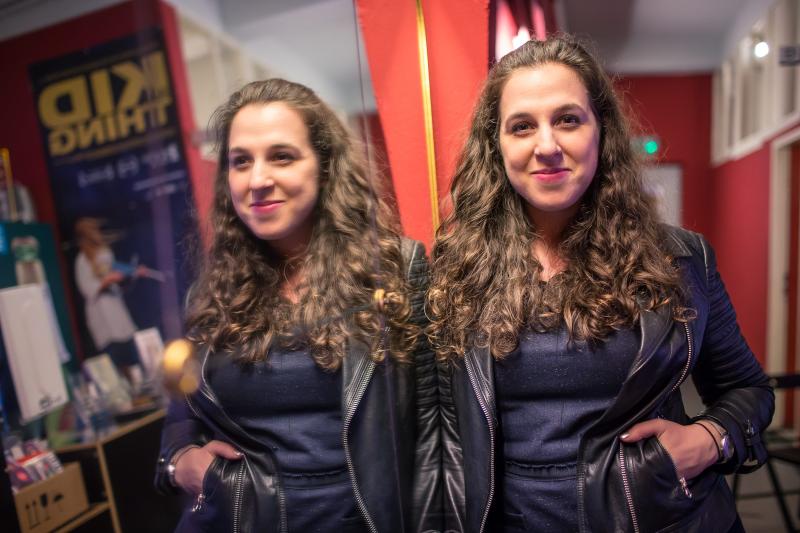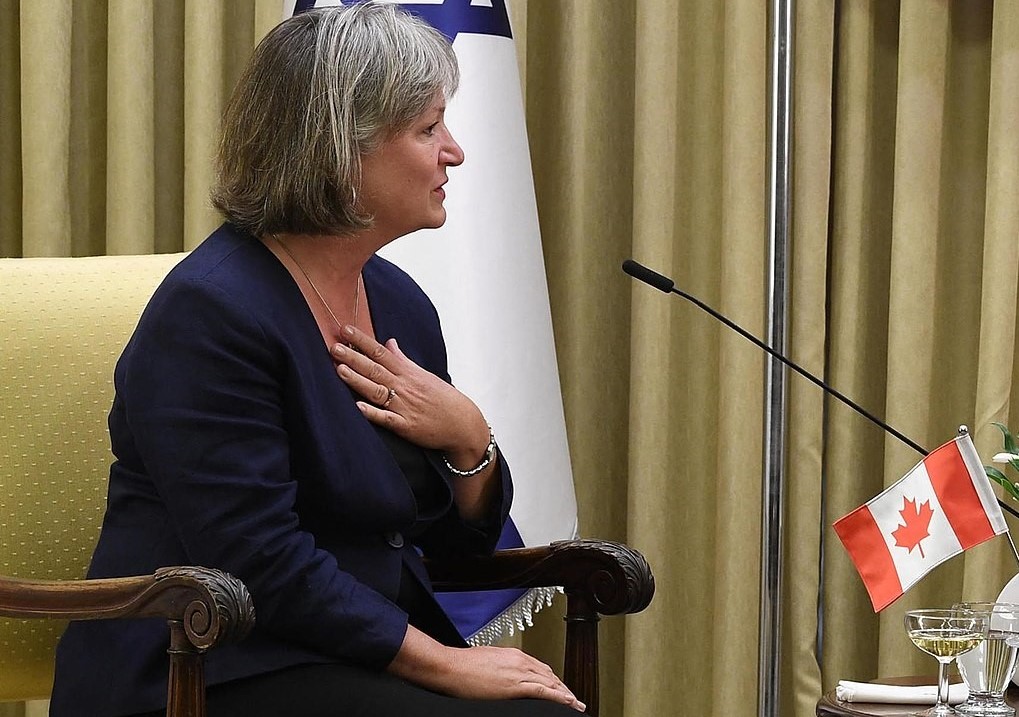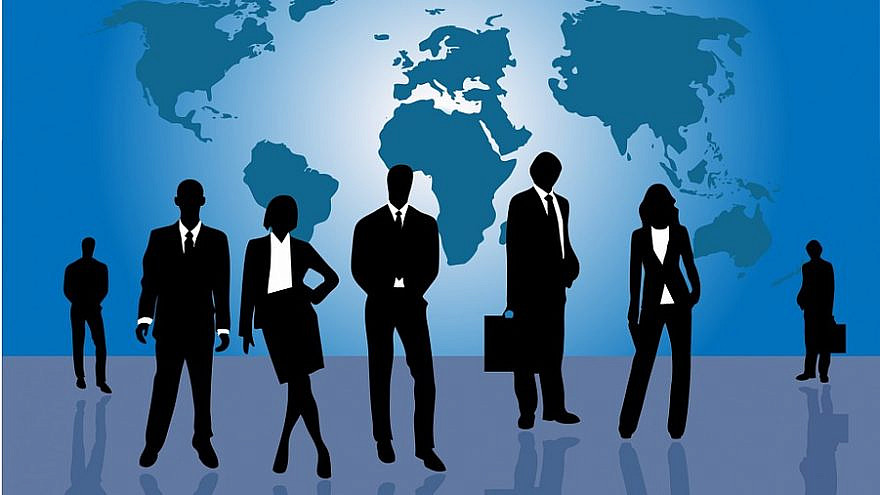In honor of International Women’s Day on March 8, Tribe Tel Aviv hosted a panel discussion that included Canadian Ambassador to Israel Lisa Stradelbauer and Israeli-American film director Paula Kweskin, founder of The 49%, who discussed the plight of women today in Canada, Israel and in the developing countries. In the talk, Stradelbauer discussed remarks by U.N. Secretary-General António Guterres earlier in the week, when he noted “how gender equality has taken a hit over the past couple of years. COVID had a difficult effect on women.”
The ambassador noted that at this current rate, it will take “300 years for there to be gender equality worldwide.”
Stradelbauer emphasized that having gender equality is pivotal, as “everything else gets better once you have gender equality. The home life gets better. The economies get better. Businesses get better. The educational level gets better. Across all measures, the world gets better if you have gender equality. So, in Canada, we have a feminist prime minister, a feminist foreign minister, a feminist foreign policy, a feminist international fiscal policy, etc. We essentially put women and girls at the heart of everything that we do.”
The ambassador stressed that more than 90% of Canada’s development assistance to developing countries “has a gender focus to it.” She claimed that the Canadian government does this out of the belief that once you have gender equality, “everything else gets better.”
“We are both the best in women’s participation in the workplace. We both do worse on the wage gap.” — Lisa Stradelbauer
She also noted that “this program rolled out before COVID and we did not realize how important it was. Because of this program, we were able to roll out dignity packs to women in poverty. So when women were not able to leave their homes, they still were able to have access to pads, toilet paper, soap, water, etc. We were quickly able to mobilize extra resources for women experiencing domestic violence.”
The ambassador recalled when people were locked down in their homes due to COVID, domestic violence rates skyrocketed worldwide.
According to Stradelbauer, the Canadians are not funding projects like that in Israel because it is a developed country: “But we do find ways to fund projects here that are gender-focused. We donated $5 million to peace-building activities and a good chunk of that is dedicated to women. We do that for when women are sitting at the negotiating table, peace agreements are 35% more likely to take form and we were not seeing a lot of women’s voices in this conflict.” So, the Canadian ambassador noted that her country is funding WePower, which helps to empower women who decide that they want to become mayors in Israel: “We make sure that these women have the skills to run elections, win elections, and then to be successful mayors.”
Stradelbauer added that U.N. Security Resolution 1325 “is the first resolution to discuss the important role that women play in peace and security. It speaks about how women are disproportionately affected by conflicts. It discusses the role that women play in solving conflicts. It calls on every nation to do its own national action play to involve women in peace and security. However, Israel is one of the countries that does not have a national action plan. There are people here doing amazing work, but they have not managed to get it through parliament here. It is not for me to say why, but I think in a place where there is conflict it is important to have a national action plan that addresses the role that women play in conflict. It is useful to have. However, Israel does have an Ambassador for Women, Peace and Security. Her name is Aviva Raz Shechter, and she is fantastic.”

‘Demand more from our government’
Israeli-American film director Paula Kweskin, founder of The 49%, stressed that U.N. Security Council Resolution 1325 is “part of international law. It is binding on all countries.”
Kweskin believes that there are Israeli and Palestinian women working hard to try to obtain peace and reach gender equality, but their voices are not being brought to the forefront. According to her, U.N. Security Council Resolution 1325 calls for women to have a seat at the negotiating table, yet when the Abraham Accords were signed, “only one woman was present, and she was the one who gave the pen to the signatories. I think that it is incumbent upon all of us to demand more from our government. Women should be included in these incredibly important moments.”
“It is true that we have a lot to lean on, a lot of privileges and opportunities. But we have some real gaps in our society that we must focus on as well.” — Paula Kweskin
She believes that Israeli women have made incredible strides and that opportunities abound: “Coming from the United States, where there is no parental leave, there is so much parental leave and so much support for women in Israel. There is even support for women who are trying to become mothers. There is an incredible system for children in terms of early childhood, from the age of 3 and up. These are not things to be taken for granted coming from the United States. So, we have to give credit where credit is due. Women are at the highest level of every space in Israel, whether high-tech, the government, the army—and we had a female prime minister. I do not want to minimize that and you cannot minimize that.”
Still, Kweskin is concerned about how religion plays such a strong role in Israeli society and how this adversely affects women: “All personal status issues are resolved in religious courts. You get married in a religious court. You get divorced in a religious court. In many cases, children’s experiences happen in a religious court when the parents are divorced. And it is not like that only for Jews. It is also like that for Christians and Muslims. So what happens is that there is a gap—the issue of agunot [women who are separated from their husbands are prevented from a legal divorce] those who do not have access to a get [legal Jewish divorce] the issue of child support, the issue of being infused in a system. I think that there needs to be a lot more emphasis on trying to reach a reasonable solution, which makes sure this never happens to anyone.”
According to Kweskin, there has also been a dramatic rise in domestic violence in Israel in the past five to 10 years: “It is not spoken about nearly enough. However, there is not just the abuse of women but also the murder of women. It is happening all of the time, and it is almost like we do not want to acknowledge it. We do not want to acknowledge that this can happen in our society and that this can happen in the Jewish state. It is so essential that we speak about this and are not embarrassed about it. We should be empowered. There are 150 million shekels sitting in the Knesset that have been allocated for domestic violence that have not moved through the system to reach the organizations yet. This is something that could really help in terms of crisis intervention, shelters, etc. It is true that we have a lot to lean on, a lot of privileges and opportunities. But we have some real gaps in our society that we must focus on as well.”

‘Demand more from our government’
Stradelbauer cited the Economist Glass Ceiling Index, which examines the woman’s role in the workplace and a number of other factors in OECD countries, noting that Israel now is No. 24 on the list, while in 2016, it ranked No. 16: “That’s not really great. I do not know what happened here in 2017 that changed things. Furthermore, the markers where Israel does best, Canada also does the best and when Israel does the worst, Canada also does the worst.”
“We are both the best in women’s participation in the workplace. We both do worse on the wage gap,” she said. “In Canada, men make 17% more than women make. In Israel, it is 25%. Another area where we both do badly is women’s participation in parliament. In Canada, it is 30%. And for Israel, you all know the results of the recent elections here.”
Presently, 24% of Israel’s Knesset members are female.
However, Kweskin noted that across the world, especially in Afghanistan and Iran, the plight of women has worsened since the COVID pandemic broke out. “There is an index from the U.S. Fund for Peace, which shows that the No. 1 indicator for how peaceful and stable society is regards the treatment of its women. It is not GDP. It is not open borders. It is not capitalism. It is literally how we treat our women.”
Rachel Avraham is the CEO of the Dona Gracia Center for Diplomacy and an Israel-based journalist. She is the author of “Women and Jihad: Debating Palestinian Female Suicide Bombings in the American, Israeli and Arab Media.”


























